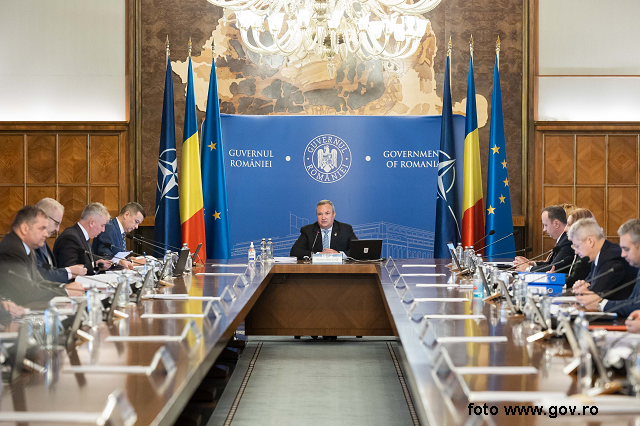The Liberal Party and the Social Democratic Party set their priorities
The ruling parties in Romania announced their priorities in the 2023 pre-election year.

Bogdan Matei, 31.01.2023, 14:00
A comfortable parliamentary majority, of around 70%, which the so-called grand government coalition in Bucharest enjoys, would presuppose a flawless functioning of both the executive team and the partnership between the parties making up the coalition – the Social Democratic Party – PSD, the National Liberal Party – PNL and the Democratic Union of Ethnic Hungarians in Romania – UDMR. However, things are not going smoothly in the coalition. A protocol signed between the parties provides that, at the end of May, the social democrat Marcel Ciolacu will take the place of the liberal Nicolae Ciucă at the helm of the Government, and the latter will take over the presidency of the Senate, a position now filled, on an interim basis, by his party colleague Alina Gorghiu.
The PNL, Ciucă says, supports full compliance with the protocol agreed with all the members of the coalition, which involves rotations both at the leadership of the Government and at the level of some ministries, and considers a possible renegotiation of the portfolios inappropriate. On the other hand, the Social Democrat Marcel Ciolacu would like the PSD to keep the ministries where his colleagues have performed well, such as the Transport or Finance ministries. To start these discussions and debates, which are time consuming, four months before the rotation takes place, from my point of view is useless replies the liberal prime minister, who announces that, in the next period, an evaluation of the results of each minister will take place.
The Liberal ministers will also be evaluated within an internal working group, which will also draft the party’s strategy in the run up to the 2024 election year, marked by local, European Parliament, legislative and presidential elections. Until then, the Liberals consider the adoption of the education laws as a priority, which is part of the presidential project Educated Romania, launched almost a decade ago by the head of state and the de facto leader of the PNL, Klaus Iohannis, and not completed even today.
The PNL also announces that in the parliamentary session that starts on Wednesday, it will also focus on the adoption of bills regarding the so-called special pensions, which do not respect the contribution principle, and on increasing the threshold for taxing pensions from 2,000 lei (the equivalent of about 400 Euros) to 3,000 lei.
Equally, the number one priority for the PSD, President Ciolacu claims, is the issue of special pensions, and the party wants to find the constitutional form for this issue to be solved once and for all in Romania. The fulfillment of the milestones set out in the National Recovery and Resilience Plan, agreed by the decision-makers in Bucharest and those in Brussels, is also essential for the Social Democrats, because access to European funds depends on it.
The more rigorous taxation of large companies, the reduction of labor taxation and a package of measures for the reduction or elimination of the VAT on basic food products are other promises launched by the PSD at the beginning of the parliamentary session. All these measures need, however, to also be approved by PNL and UDMR. And the political analysts in Bucharest are reticent about saying that they will also be adopted. (LS)






























